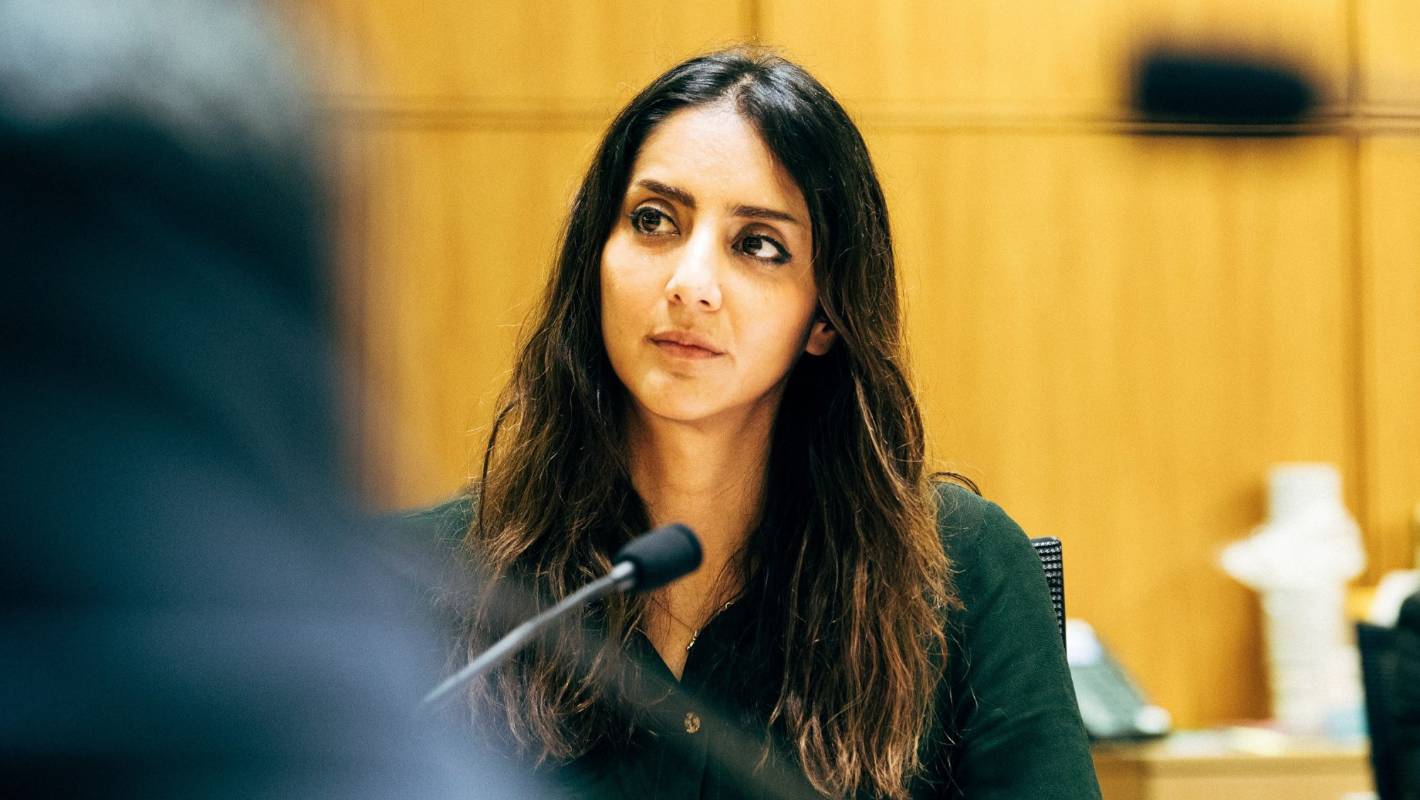When Golriz Gharaman told Newshub Nation that our colonial statues and memorials should be removed because the “hurtful aspects of history don’t represent us now”, I hoped Tova O’Brien would remind her about her country of birth’s violent history of destroying statues and monuments of the previous political regime when ushering in a new one. That practice wipes out history and ensures a bloody transition from one political regime to the next. Iran scores A+ in both respects.
No such luck. Gharaman got a free pass to pursue her vendetta on the imagined effect of our bloody history on today’s somnolent nation. This divisive aspect of her Iranian heritage should have been left behind in Iran.
In 1979 the Shah of Iran was forced to flee to Egypt where Anwar Sadat provided asylum. Iran became an Islamic republic led by Ayatollah Khomeini who set about removing all reminders of the Shah’s regime.
“Mobs of angry youths went on a rampage here today, pulling down four statues of the shah and setting fire to a bank and two movie houses.The rioting broke out at the close of a day of peaceful but undisciplined demonstrations against the rule of Shah Mohammad Reza Pahlavi called on the occasion of Ashura, the holy day of religious mourning for Iran’s Shiite Moslems.”
The destruction of historical objects that didn’t represent Islamic State continued unabated.
“For many Iranians, the destruction of historical monuments is synonymous with Sadegh Khalkhali.
Known as one of the country’s most brutal “hanging judges,” it is believed that he sent around 8,000 people to their deaths long before his own death of natural causes in 2003. It is not a legacy Iranians will soon forget.
The exit of the last Persian monarch brought a shroud over Iran’s happy Western freedoms of the 70s. The drab pillboxes in Iran today might catch a glimpse of better days through the tantalising images floating around in cyberspace but anyone with a nostalgic hankering for the past must leave Iran’s repressive regime, as Gharaman’s family did.


Gharaman’s attitude is mean-spirited. Ten years ago her family enjoyed a warm welcome, and if we are to learn anything from her latest diatribe, it is that we should be more prescriptive toward prospective migrants. They cannot expect to enjoy the same Western freedoms as we do while still clutching on to aspects of the repressive cultural norms they brought with them. We do ourselves and them a disservice by not making our expectations clear.
The NZ oath of allegiance:“I (say your name) swear that I will be faithful and bear true allegiance to Her Majesty Queen Elizabeth the Second, Queen of New Zealand, her heirs and successors according to law, and that I will faithfully observe the laws of New Zealand and fulfil my duties as a New Zealand citizen. So help me God”.
We should make it clear that citizenship includes, if required, forsaking all but the trivial values of their country of birth. Compare the process of taking up NZ citizenship with the old fashioned marriage pledge where the woman promised to “leave her family and cleave” to her husband. Marriage meant shifting loyalty from her family of birth to her husband and new family. In the same way, citizenship means shifting loyalty from the old country to the new one, while recognising that the adoptive country does things differently and some aspects of the old life must be discarded.
It’s naive to regard all cultural preferences as trivial and simply discard the notion out of hand as irrelevant. An example is the UK where areas of Sharia Law crept in when migrants rejected the UK legal system in favour of Sharia Law which they brought with them.
UK formally recognized Sharia law court in 2008 and the Archbishop of Canterbury – the head of Church of England – conceded that adopting elements of the Sharia law into UK’s court system was “unavoidable.”
Today, UK has over 130 Sharia law courts. Although they technically lie within the UK’s Tribunal Court system, these Sharia courts have been issuing rulings that contradict UK’s common law.
This is not trivial; Sharia Law will be our future in a few years unless we reject the diversity argument and insist that migrants accept and respect our existing laws, religions, cultural practices and values before being approved for citizenship.
Our woke politicians will scream bloody murder, of course, their goal being the human stew of cultural diversity. But like Gharaman, they have no skin in the game in the long term and, like Gharaman, they are stupidly naive and short-sighted. It is better to preempt major clashes of cultural significance and put our cards on the table by insisting that prospective migrants pledge allegiance to our existing values or stay home.
If you enjoyed this BFD article please consider sharing it with your friends.

